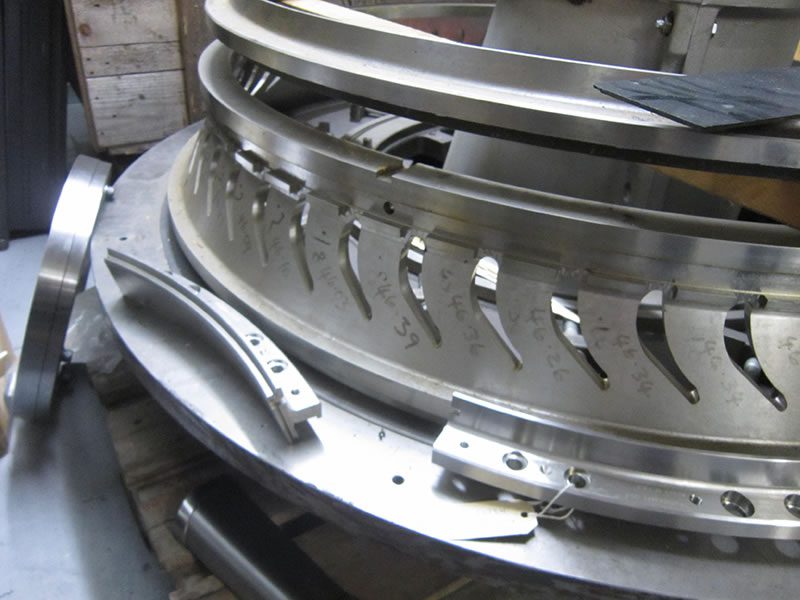The world of CNC machining is a complex one with many different types of manufacturing falling under the CNC category. From milling and turning through to grinding and boring, there’s plenty of types of CNC machining to choose from. Another aspect that is important to consider is CNC machining metals. There are a wealth of metals to choose from to be CNC machined, such as aluminium or steel. All metals of which have their own individual pros and cons. Here at PT Engineers, as one of the country’s leading precision machining companies, we’re here to help you make those all important decisions.
Choosing the right metal involves looking at various factors. This is because the properties within each metal will play a pivotal role in the performance and success of the finalised part. We have decades of experience and expertise under our belts. So, our team has plenty of knowledge when it comes to CNC machining and the metals you should choose to work with. We know what type of material suits what applications, and therefore can provide you with plenty of options and support when you have a project in mind. Read our blog below for an overview of the best CNC machining metals.
Choosing A CNC Machining Metal
When choosing a metal, you need to cross-reference what you require from the part, with the properties of the metals. For example, you may require the part to be resistant to extreme temperatures or to have a high strength and tolerance. Corrosion resistance, pricing, cosmetic appearance, and overall durability are all factored in when choosing your metal.
Choosing the suitable metal for CNC Machining involves analysing various factors. Depending on the part or product being CNC machined, the metal you choose and its properties will play a vital role in the success of the final part. For example, the metal may need to be resistant to extreme temperatures or be resistant to bending or breaking under pressure. Corrosion resistance, workability, price, weight and cosmetic appearance all factor in when it comes to choosing the right metal.
Related: Choosing The Right CNC Machining Material
Titanium
Titanium is commonly in use in CNC machining due to its strength and resilience. It is highly workable under the machining conditions yet retains its excellent strength-to-weight ratio. Despite conducting heat well, it has poor electrical conductivity. Titanium can undergo anodising to achieve a clean and protective finish, however polishing will jeopardise the cosmetic look of the metal. Lightweight and high in strength with a fantastic resistance to corrosion and high temperatures, it’s easy to see why Titanium is a go-to metal for CNC machined parts. It is a common choice of metal for aircraft parts, and compounded for the biomedical and military sectors.
Stainless Steels
Austenitic stainless steels are commonly used in CNC machining. Their chemical structure includes Nicken and Nitrogen allowing the material to offer great machinability and weldability. There are three common grades of stainless steel in the austenitic category which are commonly used, these are:
SS304 Stainless Steel
The most frequently used stainless steel is SS304, and this is due to the fact that it is highly corrosion resistant. It has great weldability and formability making it ideal for different intricate parts. It is most commonly used to produce kitchen accessories, pipies, screws, car heads, food handling equipment, and machinery parts.
SS303 Stainless Steel
This grade of stainless steel is often used to manufacture gears, nuts, bolds, and machine shafts. Despite being high in strength, it is not suitable for cold forming due to it containing sulphur.
SS316 Stainless Steel
SS316 stainless steel is incredibly strong yet each machine. With a high resistance to corrosion, it is suitable for the architectural, industrial, and automotive sector. It is also used to manufacture medical implants and surgical instruments from.
Aluminium
Aluminium is one of if not the most popular material for CNC machine milling. Its machinability and versatility combined with its fantastic strength-to-weight ratio makes it suitable for a range of parts.
7075
Aluminium 7075 is the most used grade and it possesses excellent strength. However, this can sometimes be a hurdle in the CNC machining process as it can be challenging to produce complex designs and intricate shapes.
Al7075
Al7075 is often turned to for machined parts that need sustained durability. Frames for the automotive and aerospace sectors are commonly from this grade of aluminium.
6061
Aluminium 6061 is considered to be the most economical grade of aluminium. It has great atmospheric corrosion resistance but low resistance to chemicals. It is a good general-purpose aluminium and is often in use for automotive applications.
Contact Us Today
We’ll be covering more CNC machining metals to work with in the future, but if you have any questions on using aluminium, steel or titanium in the meantime, please don’t hesitate to get in touch. Explore our website for more information or call 01788 543661 to speak to a member of our helpful and friendly team.
If you have found this blog helpful, you may wish to read our previous blog: When Is It Time To Choose CNC Manufacturing?

